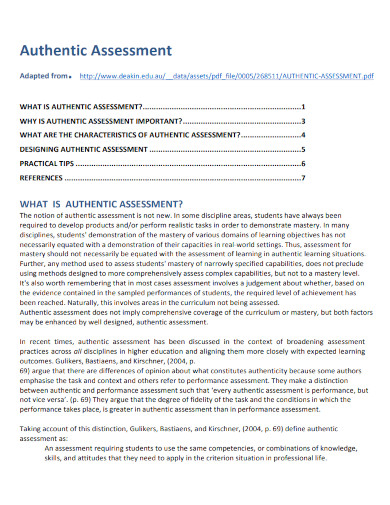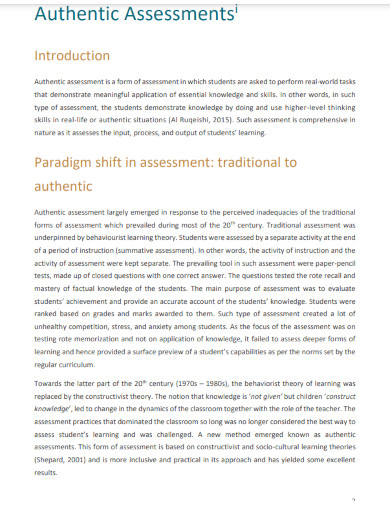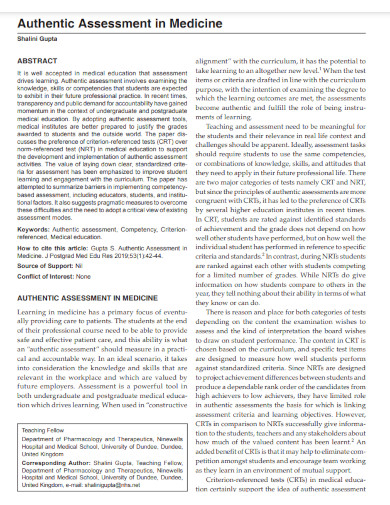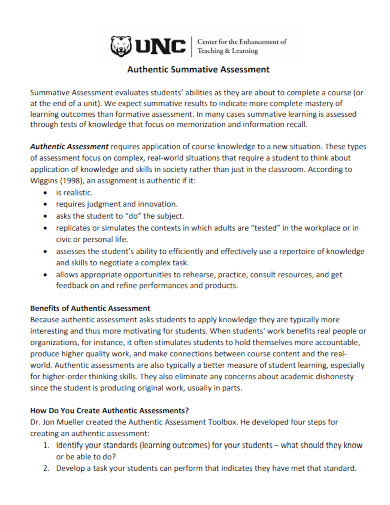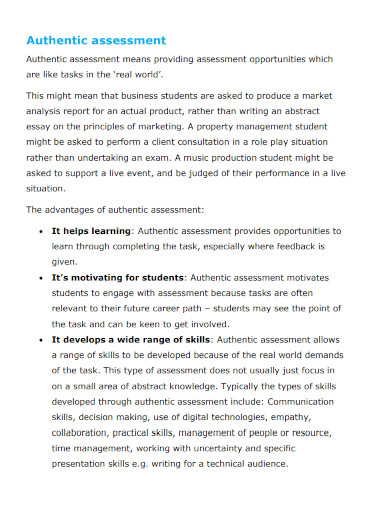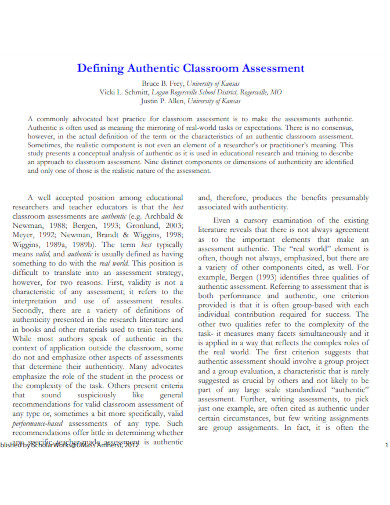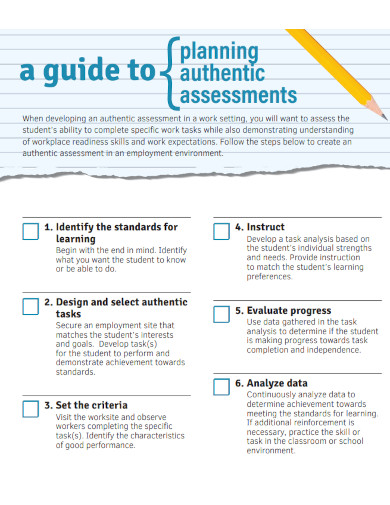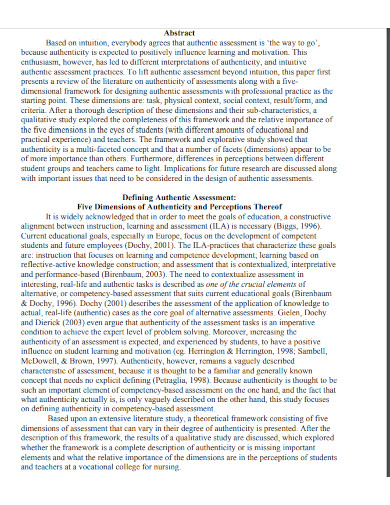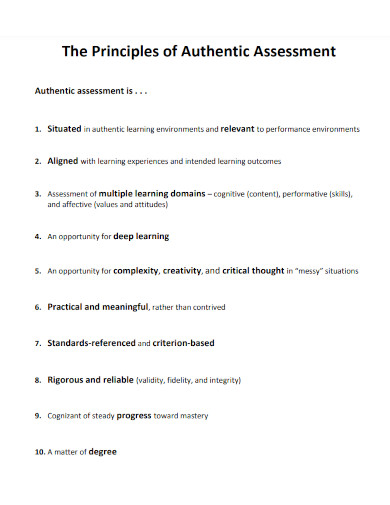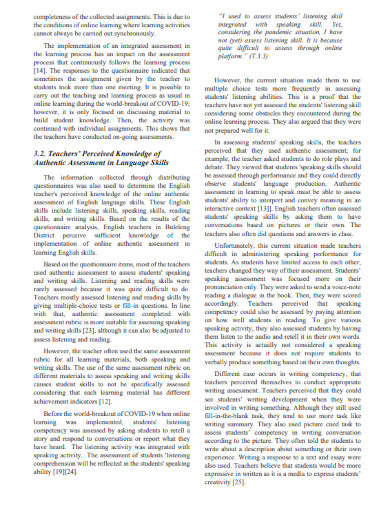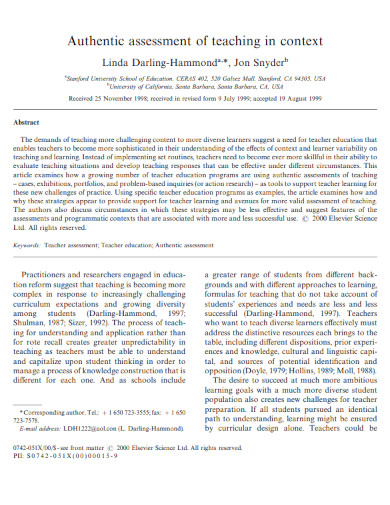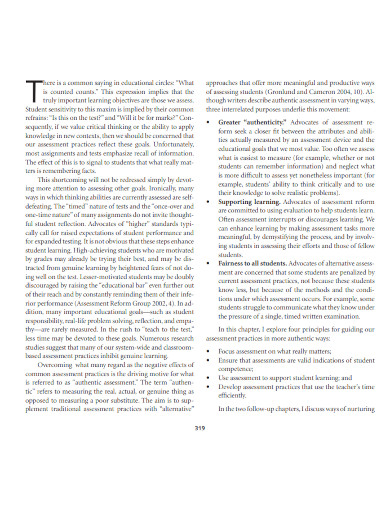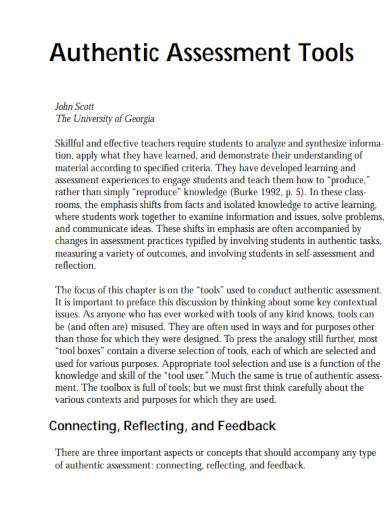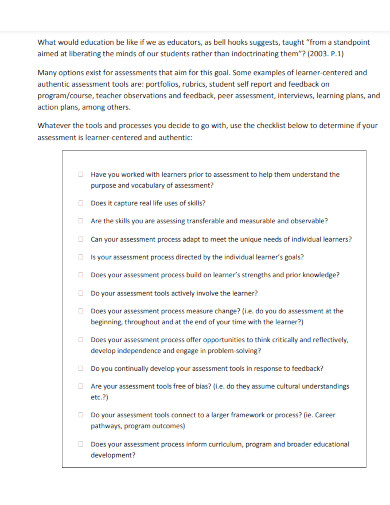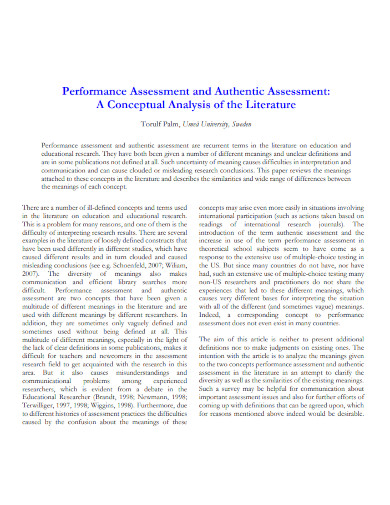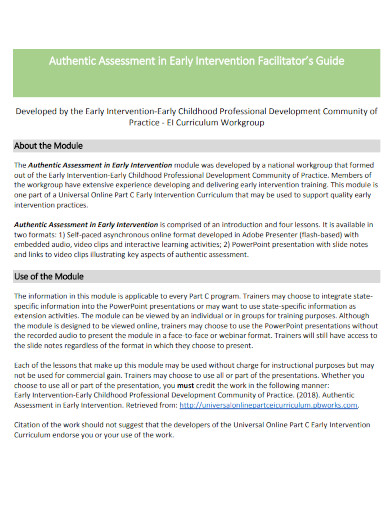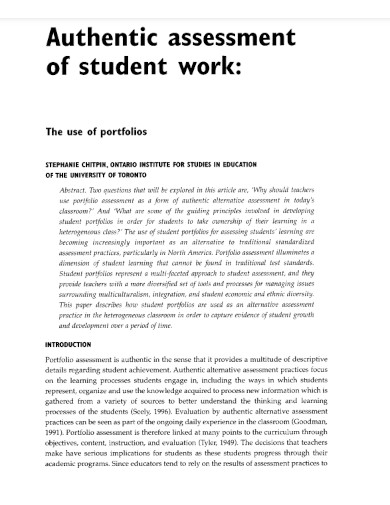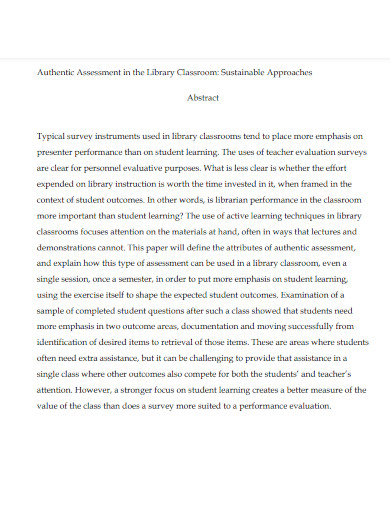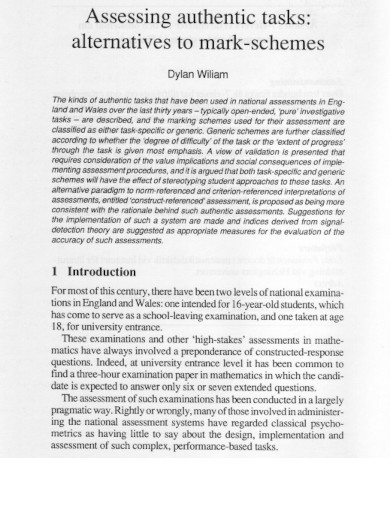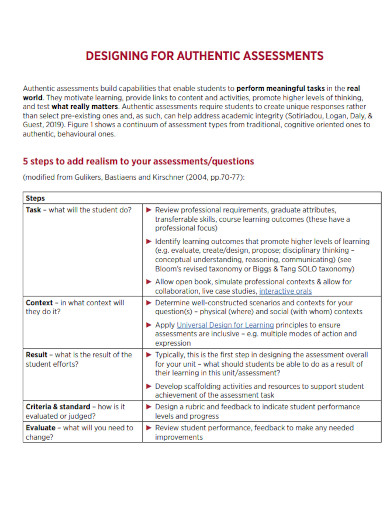19+ Authentic Assessment Examples to Download
The best way to gauge one’s understanding or knowledge of a specific hard or soft skill or ability is through its practical application. Authentic assessment allows the assessee the space to use their learned skills and knowledge in a practical context or setting.
1. Authentic Assessment Template
2. Sample Authentic Assessment
3. Authentic Assessment in Medicine
4. Authentic Summative Assessment
5. Authentic Assessment Example
6. Defining Authentic Classroom Assessment
7. Guide to Planning Authentic Assessment
8. Perceptions of Authentic Assessment
9. Principles of Authentic Assessment
10. Authentic Assessment Practice
11. Authentic Assessment of Teaching in Context
12. Four Principles of Authentic Assessment
13. Authentic Assessment Tools
14. Authentic Assessment Checklist
15. Authentic Assessment Performance
16. Early Intervention Authentic Assessment
17. Authentic Assessment of Student Work
18. Library Classroom Authentic Assessment
19. Authentic Assessment Task
20. Designing Authentic Assessment
What is Authentic Assessment
An authentic assessment is a method of assessment that will measure one’s ability, skill, or knowledge of a specified subject, or hard skill, with a focus on the practical assessment of said skill or knowledge. This type of assessment requires the assessor to plan or pace the criteria, and the method of assessment.
How to Use Authentic Assessment in a Classroom Setting
Authentic assessment allows the teacher to be able to succinctly check up on the understanding and progress of their students. For example, a college teacher in a medical school can use an authentic assessment to gauge their student’s understanding and knowledge of a person’s anatomy.
1.) Select a Skill to Conduct an Authentic Assessment
Begin by selecting the skill you want to have an authentic assessment in the classroom. This is very important as it will dictate the final form of the created assessment. You should note that it is easier to create an authentic assessment when the skill or subject is specific.
2.) Research Various Vectors of Assessment for the Chosen Skill
After you have chosen the skill you will assess, you must then research the various vectors that the assessment will take into account. This will help you formulate the criteria or rubric of the assessment you will conduct.
3.) Select the Method of Assessment and Choose the Structure
When you have finished researching the vectors relevant to the skill, or subject, you will then choose a method that can easily measure said vectors. Not only that but this will also dictate the final form of the assessment and the number of resources and time said assessment will take.
4.) Outline and Create the Criteria or Rubric for the Assessment
The criteria or rubric is the most important part of the authentic assessment, which is due to the subjective nature of the assessment. creating or outlining the criteria will help provide a more objective look at the output of the assessment and will prevent the assessor’s bias from seeping in.
FAQs
What are some examples of authentic assessment?
Authentic assessment is the process of applying one’s learning in a practical space or context. Authentic assessment can come in many forms, said forms are dependent on the skill the person will apply and the age of the person. If a person uses an authentic assessment to assess one’s creative writing skills, then the applied form of the assessment may come in the form of writing a short story, a flash fiction, or an article. People use reports or presentations to authentically assess the person’s academic performance and understanding, which is a practical sample of an authentic assessment in a classroom or an authentic assessment of education.
What are the advantages and disadvantages of authentic assessment?
Authentic assessment allows the mentors and the teachers a total understanding of where the person is on the development and application of a specific skill or topic. Not only that but an authentic assessment will also allow the person to present their skills and knowledge more succinctly. But this is not without its unique issues and challenges. Authentic assessment is a tool that will require a lot of time and effort for both the assessor and the assessee. This type of assessment is difficult to evaluate or score due to its very subjective nature, which means there is a great need for an extensive criterion to score or evaluate the authentic assessment.
Authentic vs Traditional Assessment; what are the differences between authentic and traditional assessments?
Authentic assessment is a type of assessment that focuses on the practical application of the person’s skill or knowledge on a specific subject or field. While a traditional assessment is a type of assessment that will focus on the theoretical application of the person’s skill or knowledge on a specific subject or field. Both of these assessments present their problems and advantages in assessing skills and knowledge. For example, it is harder to conduct an authentic assessment of one’s mathematical skills, unless it is a specific subject in mathematics. (Trigonometry, or geometry) But it is very easy to create a traditional assessment for one’s mathematical ability regardless of the specificity of the subject or skill.
Authentic assessment is a method of assessing one’s performance of a skill, ability, or knowledge through a more practical gauge or test. Proper utilization or usage of authentic assessment allows a more in-depth look into one’s ability or understanding, which would otherwise be very difficult to obtain from a traditional assessment.


